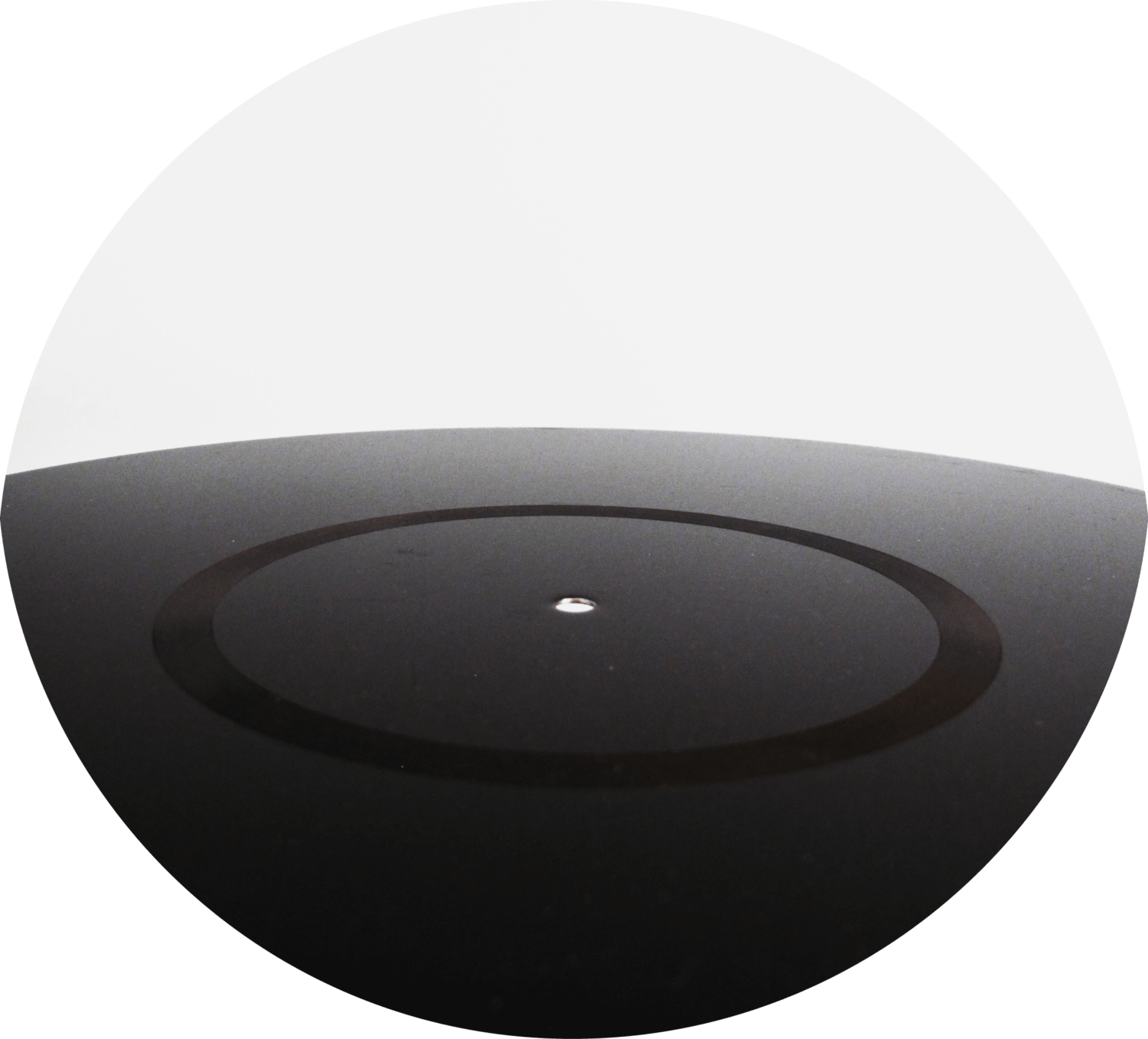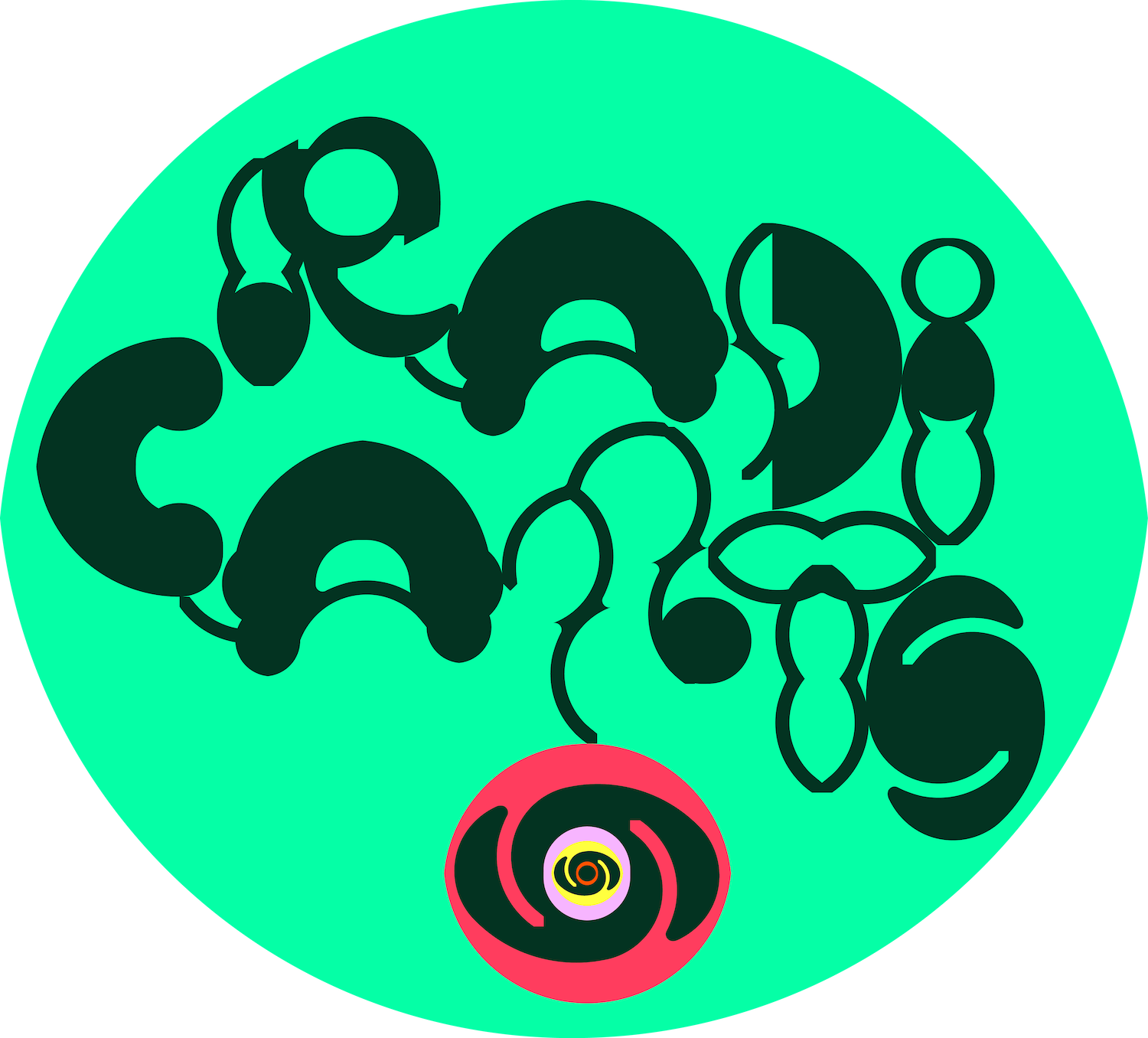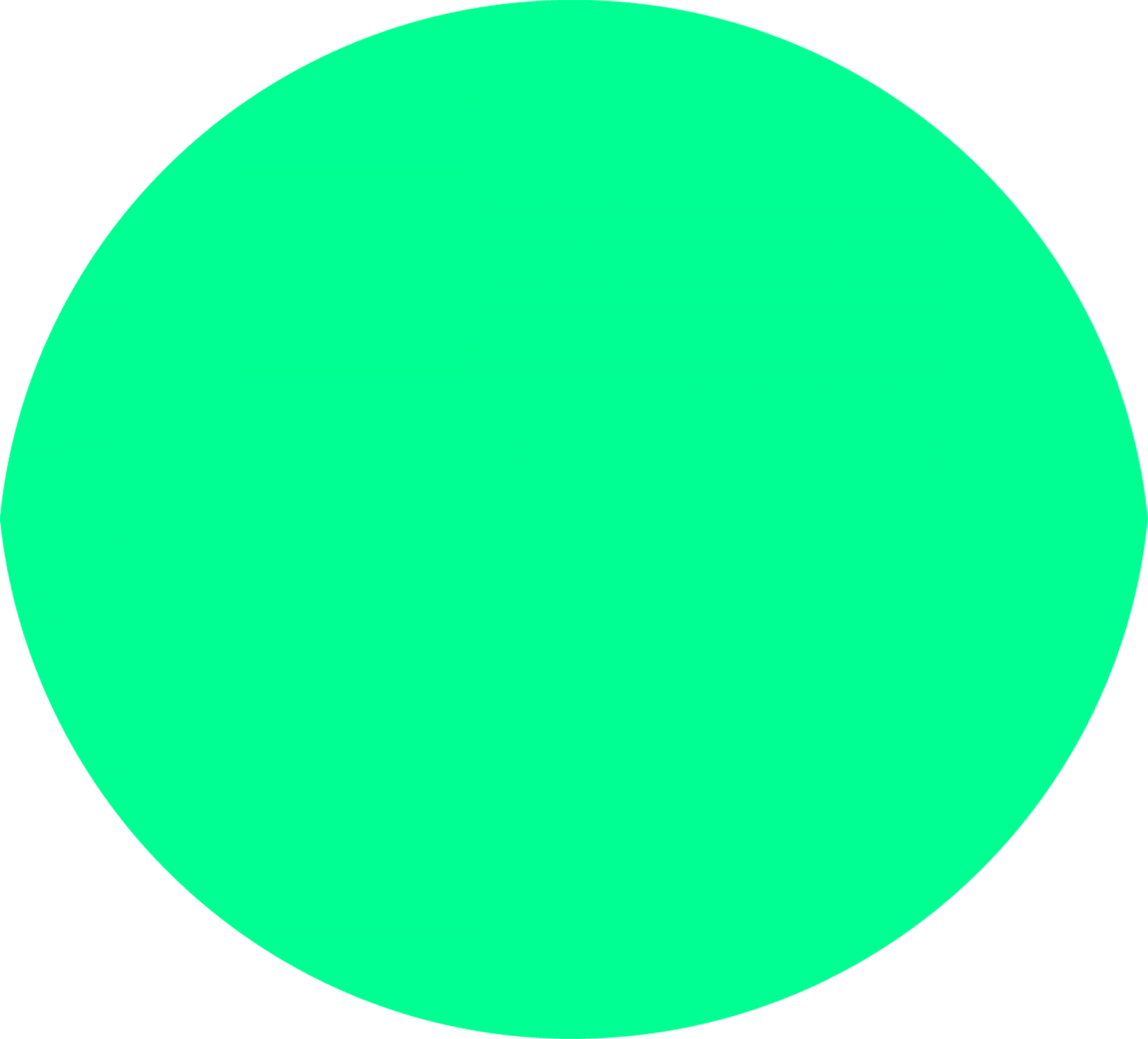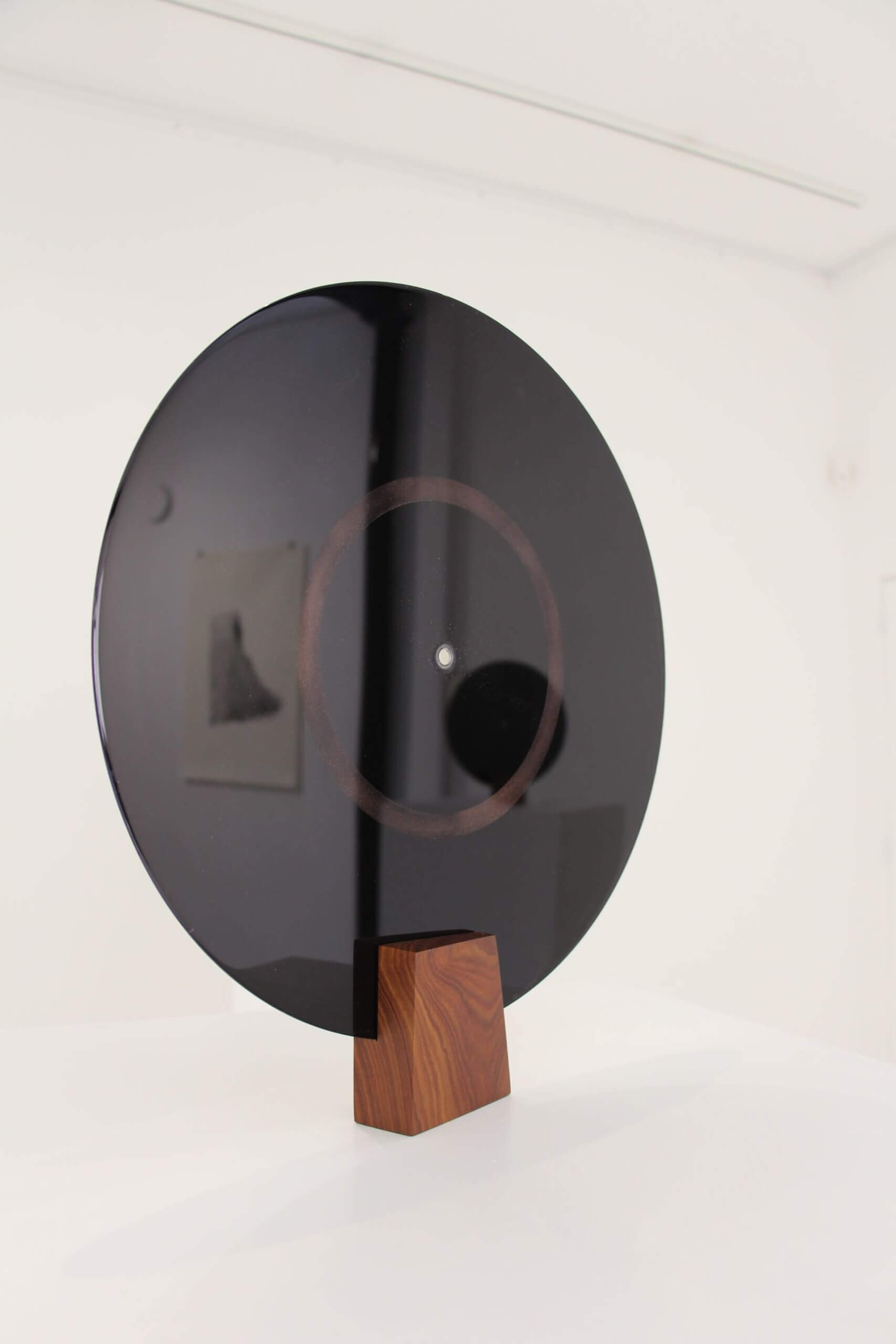It may seem difficult to discern a thread in Marina Rosenfeld’s work, so much so that it crosses practices and media, from sound art to sculpture, from acetate disc to drawing on paper and from performance to music. Sound is one of them, of course, if we accept to consider it in its relational, disruptive and fragmentary dimension. Less the sound than the social and material conditions of its production and distribution. And less the music than what precedes it, for example the long preparatory work that allowed seventeen non-musician women to play seventeen guitars placed on the floor in front of them with bottles of nail varnish (Sheer Frost Orchestra, 1993), or a choir of teenagers to sing György Ligeti’s Lontano (Teenage Lontano, 2008); a work that is as much performative as it is emancipatory.
A second thread would be the feedback, whether we think of it as a feedback loop (when a signal adds to itself) or as the setting of a self-regulating process. In Deathstar (2017-2020), she uses and hijacks a holistic microphone device designed (before being abandoned) in the Bell Lab/AT&T research centre to create both, a feedback of the exhibition sound space on itself that becomes a self-regulating process where the slightest noise feeds into an evolving and autonomous, and thus radically asubjective, sound environment. In Partials (2021), a cross-media installation that takes up and develops two previous exhibitions, it is less a question of translating one medium into another, from sound to drawing and from sculpture to photography, than of ensuring that they interfere and dissonate, supplementing (and commenting on) each other without adding up, which is yet another way of working with feedback.
A third thread would be her practice of dubplates, the acetate discs that were pressed before vinyl records to test a track and, if necessary, send it to radio stations and sound systems. Marina Rosenfeld’s dubplates are at once visual, sonic and musical works: they refer as much to turntablism as to her recording and drawing practices. Fragile and therefore evolving objects, they wear out and transform the sounds they contain, gradually turning them into noises, those of an outcropping surface. Drawn or engraved, they become radically different, plastic objects, visual supports of inaudible sounds.
-Bastien Gallet
At Radicants, Rosenfeld offers a solo performance around her newest work, The tongue of the word, a confrontation with the legacy of early minimalism, through the figure of artist and musician Marian Zazeela (1940- ), a key figure in the New York avant-garde of postwar period. The performance will be preceded by a conversation with Bastien Gallet, writer and philosopher.
visible by appointment : contact@radicants.com
RADICANTS PARIS
18, rue Commines, 75003
A proposal by Noam Segal.
Marina Rosenfeld is a composer and artist living in Brooklyn, New York. Operating across the disciplinary boundaries of music and visual art, her practice spans sound, music, performance, sculpture, and works on paper. Rosenfeld‘s work has been presented by the Museum of Modern Art and the Park Avenue Armory, New York; Haus der Kulturen der Welt, Berlin; Fundação de Serralves, Porto, Portugal; and many others. She has participated in the Whitney, AURORA, Montreal, and Liverpool biennials and had recent solo institutional exhibitions at Kunsthaus Baselland, Muttenz, Switzerland; The Artist’s Institute, New York; Portikus, Frankfurt, Germany; and the Center for Curatorial Studies, Bard College, New York. As a turntablist, Rosenfeld has performed and recorded improvised music for almost three decades. Her recordings are on Room40, Shelter Press, 901Editions and, forthcoming in 2023, Berlin’s INFO Unltd label.
A Parisian who grew up in Normandy and was happy in philosophy, Bastien Gallet listened to the musics very early on. He worked at France Culture and then at Radio Suisse Romande and director of the Archipel Festival in Geneva. Before that, he founded with a group of friends the review Musica Falsa, which later became Editions MF. He was a resident at the Villa Médicis, Académie de France in Rome. He teaches philosophy, irregularly, in art schools and elsewhere. He is interested in sounds, in sound art, in sounds that make work without making music, in what sounds tell us and what philosophy can say about them. He writes fiction, opera librettos and film scripts, would like to write more, and is in the process of writing more.








